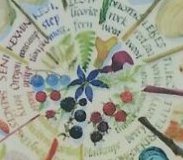While parades unfold, barbecues blaze, and fireworks launch in celebration of Canada Day, I find it more important than ever to critically engage with Canadian identity. The reality is that we are a diverse country with a vast array of identities, knit together on contiguous land yet apart because of our different access to power: resources, social status, voice, and governance.
I write from my perspective as a non-indigenous settler/visitor that occupies these lands. I recognize that from this position I reap benefits because of the race, sex, and class I was born into. I have chosen not to celebrate Canada Day. I have chosen this because embracing a Canadian identity, as defined by a dominant power, erases the diversity of indigenous identities and nations that exist in this vast land we refer to as Canada.

So, I ask, what are we proud of? If we are so proud of the sovereignty given to us by Great Britain, can we not also question the continued lack of sovereignty of indigenous people?
I ask that Canada Day be not a reason for celebration, but a call for critical reflection on genocide, racism, and dominant colonial worldviews.
I invite other non-indigenous folks to be curious and critical and to reflect on your “Canadian identity.”
As the old saying goes, “With great power comes great responsibility.” I hesitate to tell anyone what their responsibility is; however, as a non-indigenous person, here are some things that I have chosen to do in my life: listen to indigenous people. Create spaces for indigenous voices, everywhere. Be critically self-aware. Be open to critical feedback. Learn how to dismantle oppressive systems. Learn about and support indigenous worldviews.
Our country’s history and our present socioeconomic systems are steeped in the subjugation and genocide of indigenous people. Canada’s prime minister has acknowledged this. Apologies are lovely but must be rooted in concrete action that raises up indigenous leadership.
I wanted to acknowledge the space which I am taking up as a white man. I feel uncomfortable and critical about it. I also feel it’s important, in a time when many of us are in the throes of ritualistic nationalism, that we consider how we can do this better. Let us create more spaces for indigenous sovereignty and voices so that we can all explore living and cultivating meaningful and caring ways of being together.
